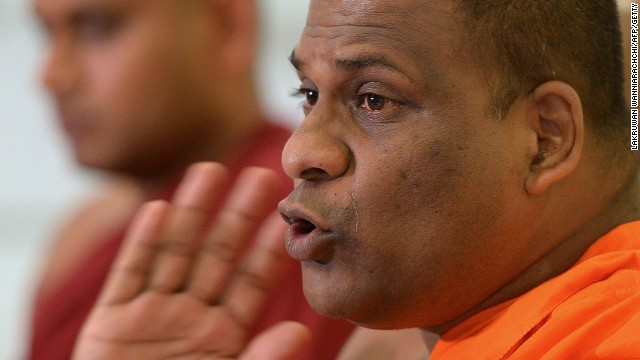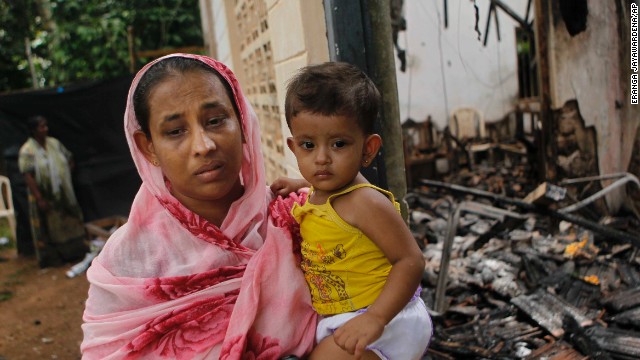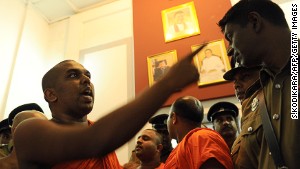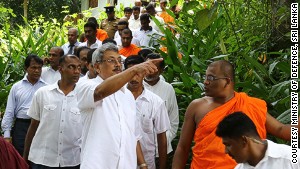By Sister Jasmine
We are into the last ten days of Ramadaan, and this is the point when the neighbours stop sending cookies at Iftar time, when fewer people go for Taraweeh (evening prayer), and more and more go to the malls. I remember as a child, when we reached the fifteenth day, our parents used to say, don’t worry, you are at the top of the hill, now it is easier because it is downhill. This has become a belief entrenched in us, but what happens with this perception is that we get careless and thus we miss out on the most important days of Ramadaan. These are the days when Allah invites us to work for entry into Jannah (Paradise). Instead we are so busy deciding between what to serve for Eid lunch and doing last minute shopping. In view of our goal, these last days are actually an uphill climb. Here strong faith is crucial. Imagine Imaan (faith) as a vehicle to get us up this hill.
As we place our foot on the accelerator, feed the tank with kindness and empathy. Not just for the poor and needy, but also to our family. The power attached to a heartfelt word or act of genuine kindness will help us to move smoothly up the hill which represent the last ten days of this holy month.
Kindness leads to compassion. As we tread the path of Allah consciousness, show compassion to those struggling along the road on foot. Without compassion in the tank the engine will stall at the next sharp bend.
It is day three and the car seems to be a little sluggish, time to check the oil. We need more than petrol to get up this hill. Similarly, to be truly compassionate we need to move away from judging others. It is not possible to be truly compassionate when we judge others. The car is hiccupping now, so to get moving again, use the oil of non-judgment .Being judgmental could be like pouring old and used oil into your engine and expecting it to move smoothly.
It is day four, and the pace is quickening. So many things are clamouring for our attention as we comfortably move along. As the pace speeds up, it is easy to get distracted; time to engage the gear of patience as we strive to gain entry into Jannah.
So many things need to be done; trying to do everything can lead to a loss of focus. This drains us of vital energy and we can lose focus. When our energies are drained, our spirit is down. This leaves us with very little spirituality in what we do. However, try to persevere calmly in the face of difficulties. We need balance to truly appreciate life. As we continue up the hill remember, you can still do what is necessary, you just have to prioritise. The true believer worships and fulfils his obligations to Allah, while living in the Dunya (world), and fulfilling his obligations to family and society.
As the month draws to a close, we enter into the period wherein lies a great and auspicious night..Laylatul Qadr (The night of Power). Here the windshield may be a little foggy; so to clear the glass, apply a little stillness, some quiet time to ponder and reflect. This is the night of inexplicable rewards, an ideal time to spend in solitude, reading the Quran, or in the Masjid. Even at home, you can sit with your young children, explaining to them the importance of this night. Now use the gear of service. Most of us are trapped in the ‘do more’ ethic. We work instead of providing a service. When we serve our family it is an Ibadah (worship).
As we enter the last three days we can feel fulfilled with our progress, but once Ramadan is over, we may change back. We now need to change the points and plugs, so insert the points of growth. As we remember and draw closer to Allah we feel the growth in our spirit. Allah created us as loving, powerful beings. When we live up to our inherent qualities of Allah consciousness with commitment and sincerity we will grow and expand into our spiritual nature.
We have grown the past month; so let us be grateful for the journey. Since we have made it thus far, and our vehicle is still going strong; it is time to insert the gratitude plug.
As Muslims, one of the phrases that we are taught from babyhood is Alhamdulillah (All Praise is to Allah). In fact, so ingrained is it in us that sometimes we say it without conscious thought. When we sayAlhamdulillah, we are simultaneously praising and thanking Allah. For this to be truly effective, we have to be conscious of what we are feeling and doing. When we are conscious, in the present moment, what we feel is gratitude. Let us now, at day twenty nine, pause and reflect on all the things we are grateful for.
Alhamdulillah, here we are at the top of the hill. How awesome that we have reached this last night, with the grace and mercy of Allah. This dilapidated and rusty car has turned out to be a trusty little vehicle. With the right fuel, oil, and using the various gears, we have done it. This is a joyous moment, and whatever happens from here on, we are able to carry on. During these entire 30 days, we have been cognisant of the implications of the three 10 day periods; we have remained focussed on what we had to do to reach this point. We recognized the truth and wisdom of Allah’s commands and we made conscious choices in the face of adversity. Filled with joy we will always know that everything will be fine. There is just one more thing to do. We have been instructed to spend the night preceding Eid in Ibadat, and traditionally we know what usually happens. There is so much activity and noise, and people work through most of the night so that on the day of Eid they are exhausted. Let us try to change that this year, a feeling of joy will follow if you believe and trust that Allah will never let you down.
With fasting we imitate the angels who do not eat or drink. As humans we are made of dust. When we fast we are suppressing our carnal selves and promoting the angelic part within us. May this month bring forth our angelic selves and may we continue to imitate the angels in their obedience to Allah.
Kareem means generous and this month is generous indeed with all its blessings and treasures. It also means to ‘burn’ as it burns away our previous sins. May we all benefit from that generosity. May Allah have mercy on us, forgive us and guide us on the straight path, never to repeat those sins so that we may be saved from the fire of Jahannam, Insha’Allah. Ameen.
*****
Source. www.eislam.co.za
Please send feedback or any constructive comments to: This e-mail address is being protected from spambots. You need JavaScript enabled to view it
For general & motivational articles on Islam visit website: www.eislam.co.za
If you would like to contribute an article/s to please email it to: This e-mail address is being protected from spambots. You need JavaScript enabled to view it
July 15th 2014
The Editor
Ceylon Today
Horton Place
Colombo 7
Dear Editor.
In the Ceylon Today of July 15th 2014, Mr Rizvi Hakeem, claiming to be a
Muslim and representing the Islamic Interfaith Movement has insinuated that
His Holiness the Dalai Lama did not specifically refer to Buddhist violence in
Sri Lanka and Myanmar in his speech made at the celebrations of his 79th
Birthday. Please see link to YOUTUBE video of the speech of His Holiness the
Dalai Lama's where he refers to the violence against Muslims by Buddhists
in Sri Lanka and Myanmar at 16 Minutes 35 seconds in his 31 one minute
speech. http://www.youtube.com/watch?v=QScjpN7Hx00#t=1150
It is regrettable that a Muslim and representing a Muslim organization
continues to mislead the Sri Lankan public of the important statement made by
one of the most respected Buddhist leaders in the world, highlighting the threat
to Buddhism from fascists groups who promote violence. This in itself calls in
to question the motive behind this letter to the newspaper and casts doubts on
the true identity of the author.
In March 2014 too, a group claiming to be "Moderate Muslims for a Peaceful
Sri Lanka" issued statements when the Geneva sessions were in progress to
one of the English dailies that had been fabricated by spin doctors with vested
interests.
Sri Lanka has had enough of violence and turmoil during the last two and half
decades. The drive towards peace and development that the Government
embarked since the end of the war in 2009 went up in flames with the two
days of rioting in Aluthgama and Beruwela, instigated by the venomous
speech by the Secretary General of Bodu Bala Sena, Galaboda Aththe
Gnanasara Thero. It is indeed ironic that the police have not any action against
this person who has soiled his hands with the blood of four persons dead and
caused damages houses, business and property running in to billions. He still
continues his hate campaign with impunity.
We kindly request the Ceylon Today newspaper and its editor to be vigilant
and not fall prey to undesirable elements that are creating communal tensions
Hilmy Ahamed
Vice President
Muslim Council of Sri Lanka






.jpg) A mother of five children was arrested by the Kuruwita Police yesterday for allegedly burning the face of her five-year- old daughter with a heated spoon used to make hoppers.
A mother of five children was arrested by the Kuruwita Police yesterday for allegedly burning the face of her five-year- old daughter with a heated spoon used to make hoppers.